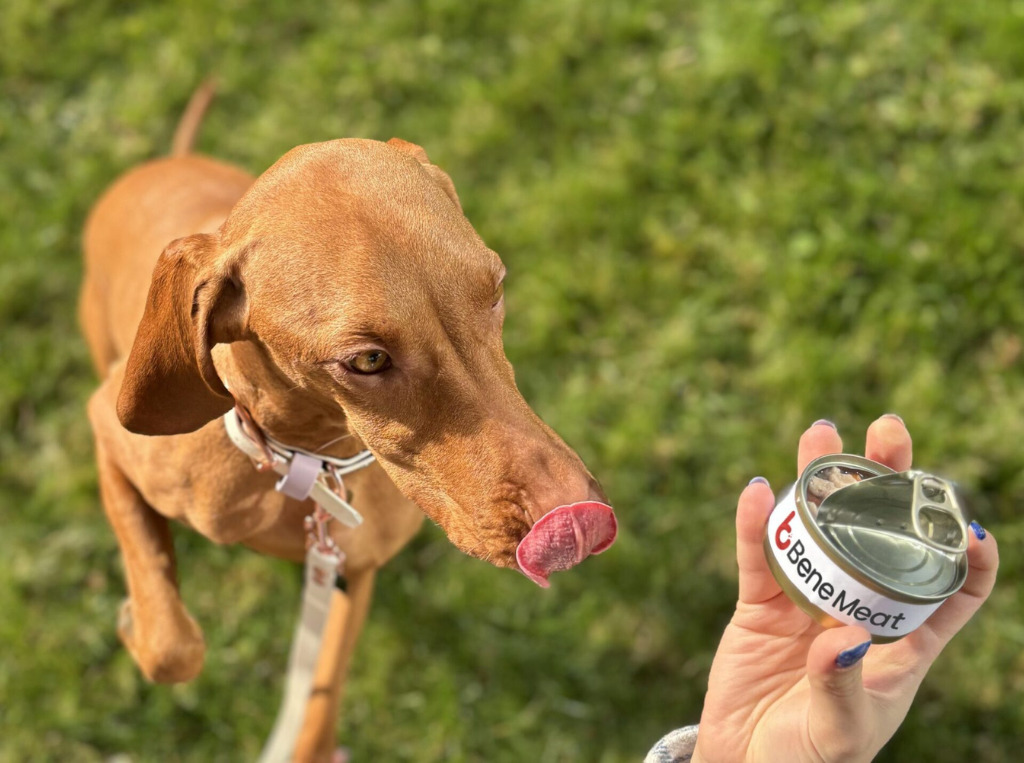
There have been a host of developments in the cultivated pet food sector of late, headlined by Czech startup Bene Meat Technologies earning the first EU regulatory approval for the use of cultured meat in pet food.
Prague-based Bene Meat has become the EU’s first cultivated meat company to be cleared for sale in pet food after receiving approval from the European Feed Materials Register. The milestone is the latest development in the burgeoning cultured pet food sector, which has witnessed new tech, new brands, as well as rebrands.
Bene Meat becomes the first to receive EU regulatory approval
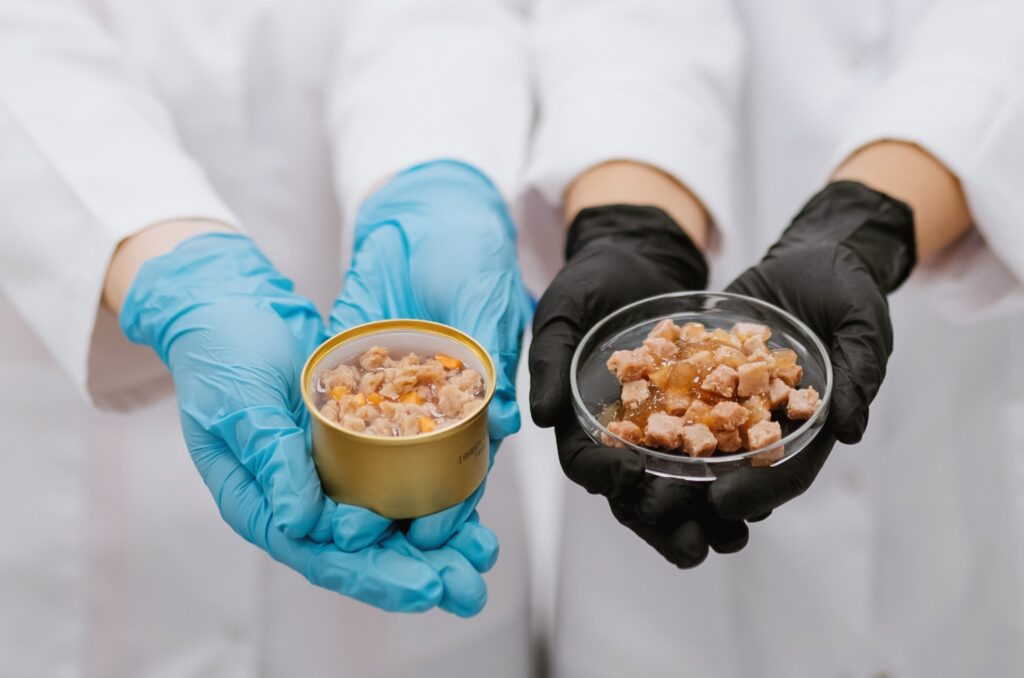
The Czech startup was founded in 2020 to make cultivated meat for human consumption but has pivoted to pet food for now, providing cultured meat as a raw material to global pet food manufacturers. It has been developing its own FBS-free growth factors since 2021, and now plans to boost production to produce several tonnes of cell-cultured meat daily by mid-2024.
“Thanks to the obtained certification, nothing prevents us from taking further steps,” said Tomáš Kubeš, Bene Meat’s head of strategic projects. “We’re negotiating with feed manufacturers to get this wonderful product into production.” Its tech can be adapted according to manufacturers’ requirements, offering an ingredient that can be fully used in the making of any pet food product.
“We look forward to working with manufacturers, as we’re doing it for them and their customers,” added managing director Roman Kříž. “Manufacturers have a unique chance to gain an unprecedented competitive advantage in the market, thanks to the existence of our product.”
Kříž told Reuters that Bene Meat is the first company globally “that has an official authorisation for the production and sale of cultivated meat for cats and dogs”. He added that the startup is able to scale up its manufacturing at prices that make its meat commercially viable on par with premium and super-premium pet food products.
Bene Meat is emerging in a market with strong acceptance of cell-cultured pet food. A Czech survey by NMS Market Research found that 48% of citizens prefer cultivated meat in pet food for health and safety reasons, while 27% cited ethical and ecological factors as purchasing drivers for cultured meat for their furry friends.
The startup now plans to test how the meat tastes to pets, and will scale up production in its Prague lab as well as a new facility it’s on the lookout for. Bene Meat expects to introduce the first cultured meat for pet food in the EU in early 2024.
Meatly takes on the UK
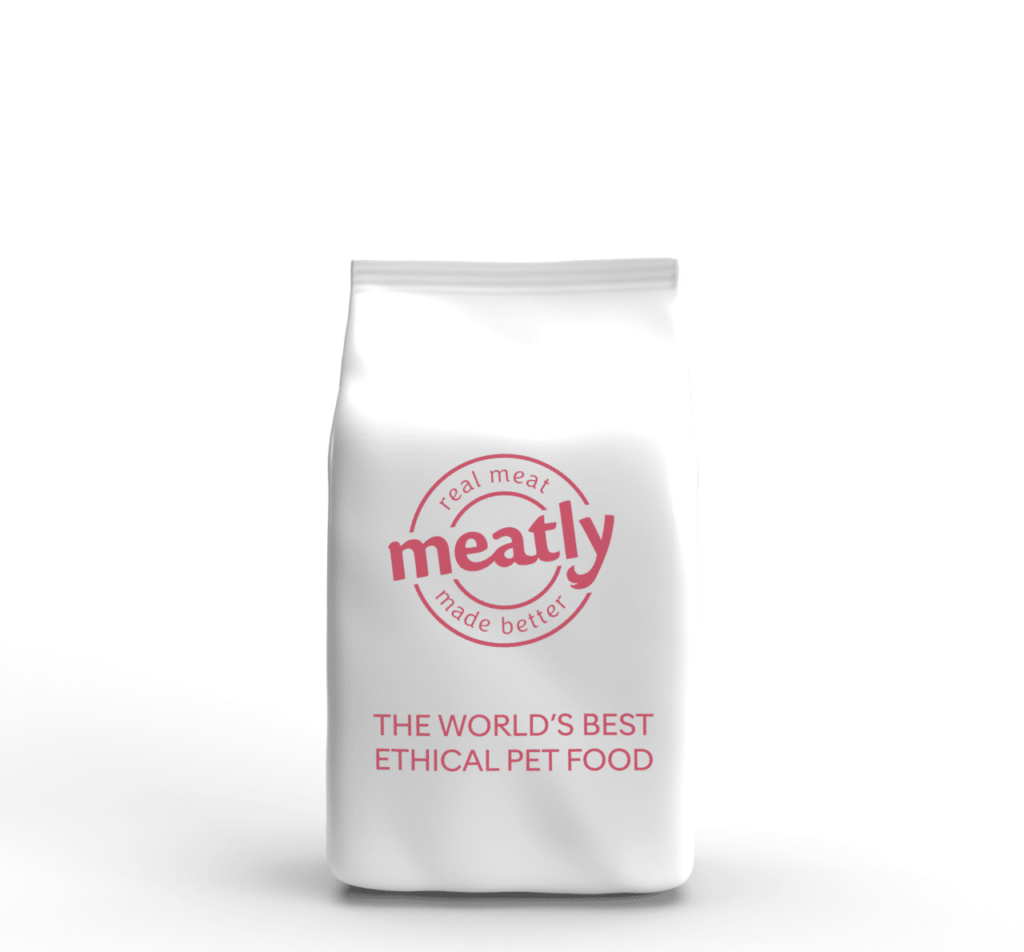
Another company planning to launch cultivated pet food in Europe – starting with its home market in the UK – is Meatly. If you’ve never heard of it, it’s because this is the new name of the startup formerly known as Good Dog Food.
The company, which raised £3.5M in seed funding earlier this year, has just rebranded as it prepares to launch in the UK. Its chairman Jim Melon, executive director of Agronomics – who created the startup in collaboration with Roslin Technologies – has previously said that it would be easier to earn regulatory approval for cultured meat for the pet industry, rather than for human consumption.
Meatly was only launched last year, and makes cultivated chicken by “taking a sample of cells from a chicken egg just once”. It has already secured “key partnerships with manufacturers” – including with petcare retailer Pets at Home – to get its pet food on shelves soon.
“Our pets love meat, but old-fashioned meat – produced through factory farming – requires a huge amount of land, water, and antibiotics and is a key cause of environmental degradation,” said Meatly CEO Owen Ensor. “We need cultivated meat now more than ever. Pet food is the natural starting point, given consumers’ excitement. We’re thrilled to be at the heart of the future of meat production in the UK.”
A kinder seafood brand for pets
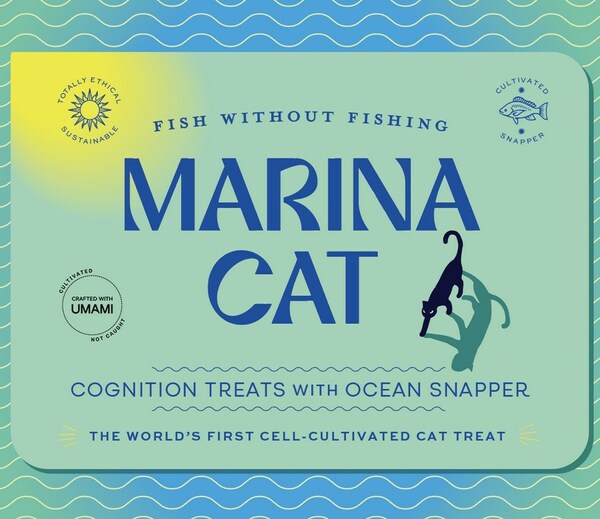
More recent developments include the formation of Marina Cat, a cultivated pet food brand born out of a collaboration between Canada’s Cult Food Science and Singapore-based cultured seafood producer Umami Bioworks.
Marina Cat will combine Umami’s cultivated red ocean snapper and Cult’s patented nutritional yeast ingredient, Bmmune, to make a “high-protein, low-calorie” feline treat that “provides benefits to a cat’s cognitive function, based on its high levels of omega 3, 6 and 9 fatty acid chains”.
The startup aims to begin production this year, and expects its product to have widespread availability in 2024. “My vision for the future is that we no longer have to slaughter other animals to feed our cats,” said Joshua Errett, Cult’s VP of product. “This brand brings me one very great step closer to making that a reality.”
The AI opportunity
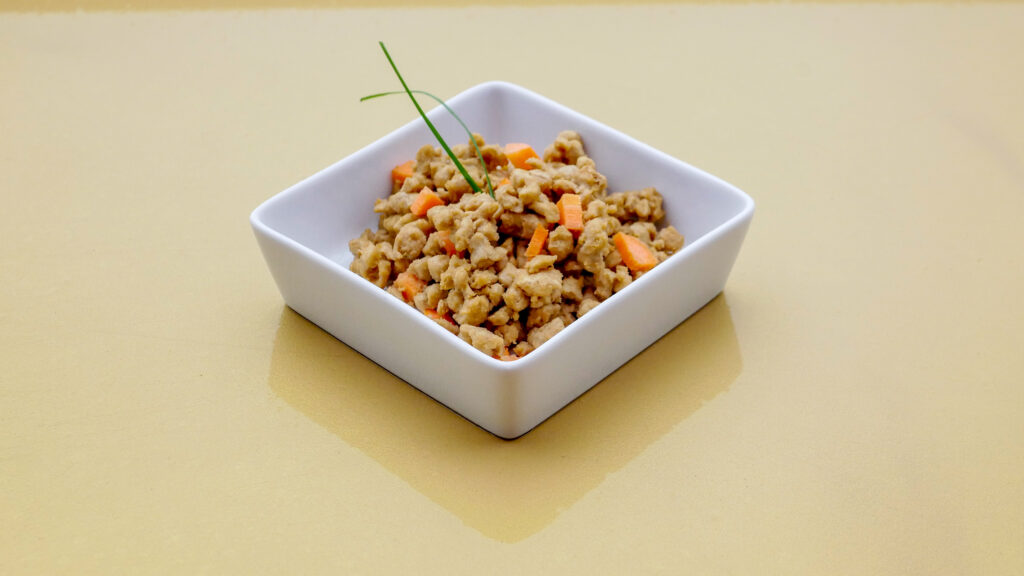
More recently, Vienna-based BioCraft Pet Nutrition (formerly Because Animals) unveiled its proprietary AI and machine learning tool to accelerate R&D for optimal cell proliferation and nutrient production. The tool processes publicly available data and synthesises it into “a picture of the biochemical machinery inside a cell”. It then analyses the data to identify nutritional inputs that can enhance cell growth, nutrient biosynthesis, or other biological processes key to cultivated meat production.
“The main costs and time sinks on the way to commercialization are R&D-related, and our AI has substantially streamlined this process, accelerated our progress, and reduced costs,” said BioCraft founder and CEO Shannon Falconer. “In this application, AI can surpass the human brain for speed and efficiency, and helps us derive more complex conclusions by making more connections between more facts.”
This came a few months after BioCraft had developed a chicken cell line for both cat and dog food, with the cultured chicken ingredient containing all essential nutrients found in conventional pet food, including high protein content, key vitamins, fats and amino acids like taurine.
With the help of AI, BioCraft – which has previously unveiled cell-based mice meat – is engaging in fewer, more targeted experiments, to fine-tune its cell proliferation process and improve the health credentials of its meat. Additionally, it can identify less expensive inputs and ingredients, including those less likely to raise regulatory concerns. (So far, no company has received approval from the US Centre for Veterinary Medicine.)
Why alternative pet food is crucial

Pet food is a $144B market and one that’s set to grow annually by 5.3% until 2028. But the industry carries a massive environmental burden. In the US alone, for example, manufacturing cat and dog kibble is equivalent to 25-30% of all animal-consumption-related emissions. And globally, dog and cat food emit around 64 million tons of carbon per year – that’s the equivalent of over 13 million cars.
In fact, according to one study, if cats and dogs were considered their own nation, they would rank as the world’s fifth-largest meat-consuming entity. Moreover, health is an increasing priority for humans, and the continued humanisation of pets has led to a crossover of habits.
This is where cultured pet food comes in. A 729-person study last year found that while 32.5% of Brits would be willing to eat cultivated meat themselves, they’d be more willing to feed it to their pets (47.3%). Of those who would try these proteins themselves, 81.4% would be happy to give them to their four-legged friends.
A recent study exploring the environmental impact of vegan pets can provide an insight into the climate-friendly nature of cultured pet food too. The research suggested that if all dogs and cats went plant-based globally, it could help feed nearly 520 million people, save more greenhouse gas emissions equivalent to those produced by entire nations, and free up land the size of several countries.
Further research found that vegan diets can be just as healthy for cats as meat-based ones, shedding the ‘obligate carnivores’ universally associated with felines. It followed another study published last year that found that vegan diets are the healthiest and least hazardous choice for dogs.
In fact, vegan cat food is a $9.2B market that’s expected to nearly double by 2030, while the vegan dog food market is currently valued at £11.5bn ($14.1B), and projected to reach £21bn ($25.8B) by 2033, according to the Guardian.
All the signs are there for the continued growth of alternative pet food, a category that also includes brands like Wild Earth (cell-based dog food) and Bond Pet Foods (cultured chicken for dogs and cats). These latest developments – notably the approval in the EU – are major markers of what’s to come for this sector.
The post Cultivated Pet Food Gains Steam as Czech Startup Earns First EU Regulatory Approval appeared first on Green Queen.
This post was originally published on Green Queen.